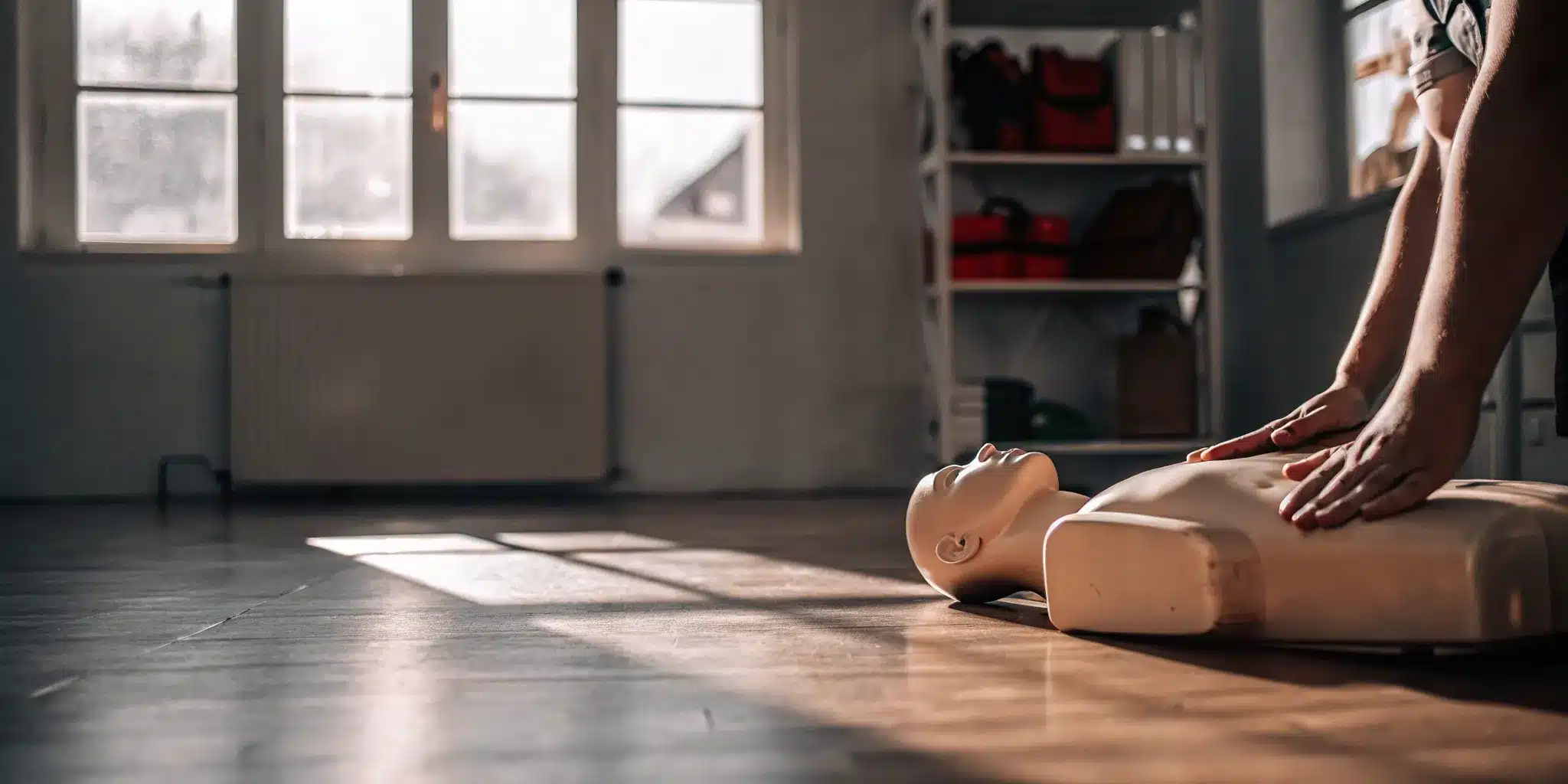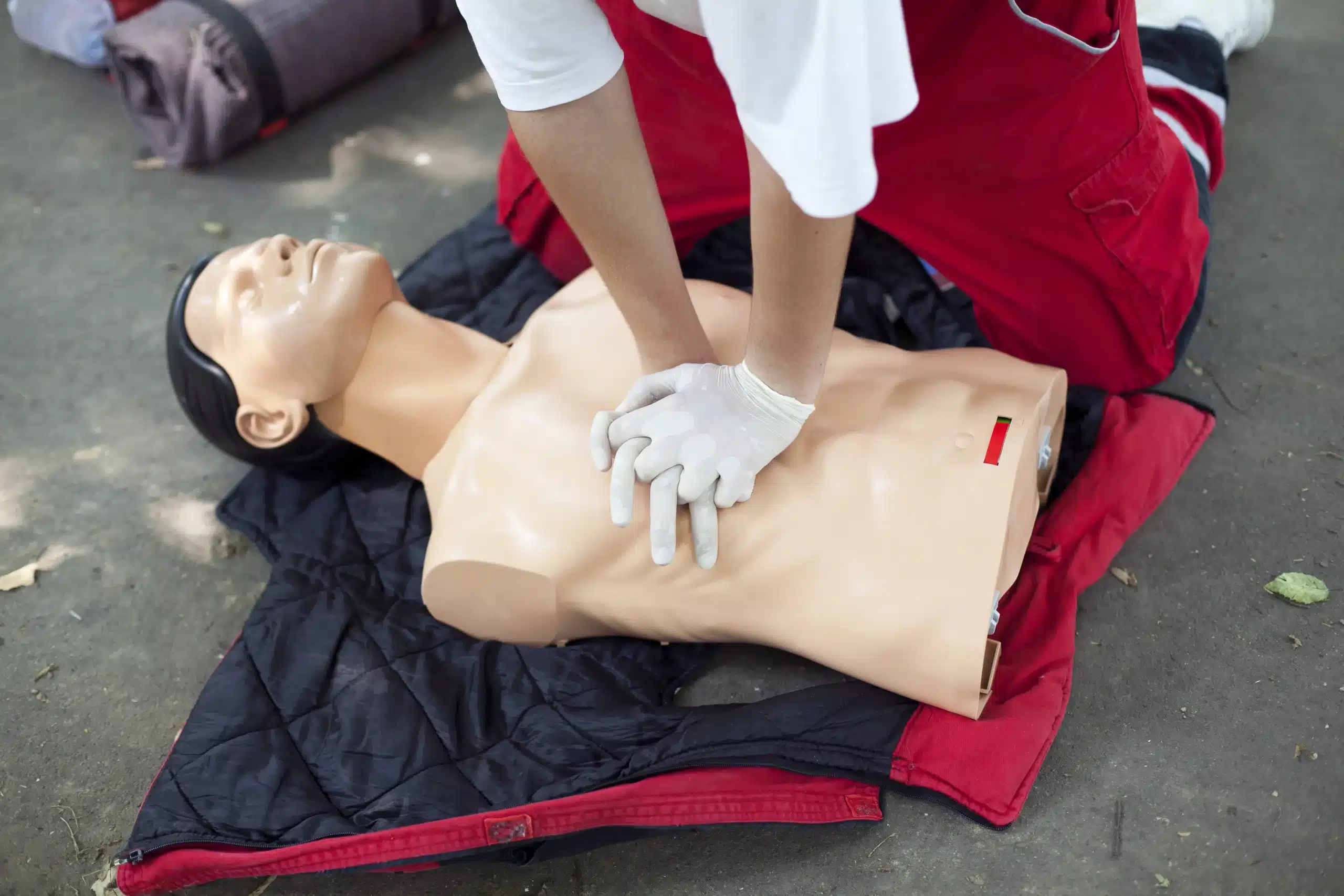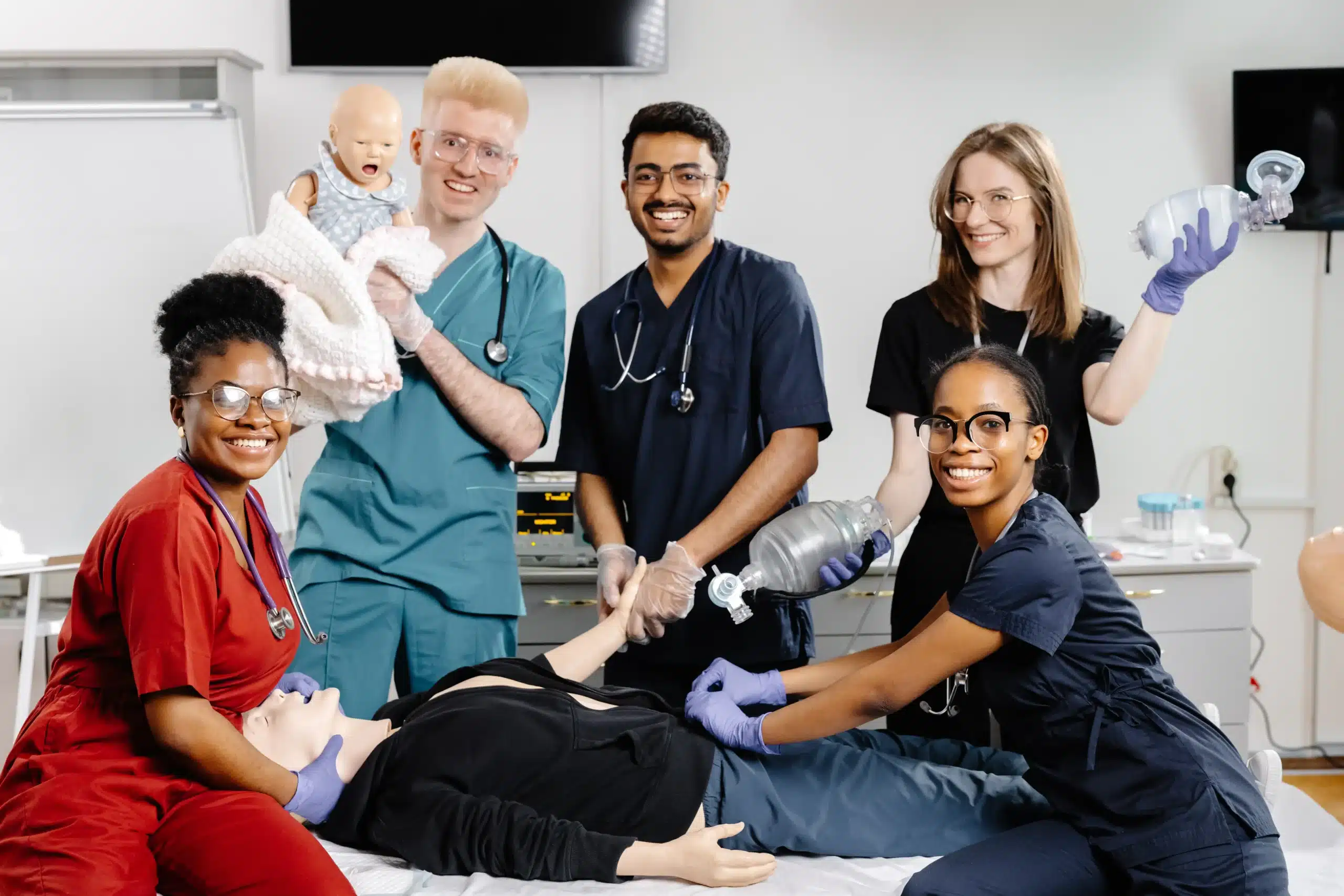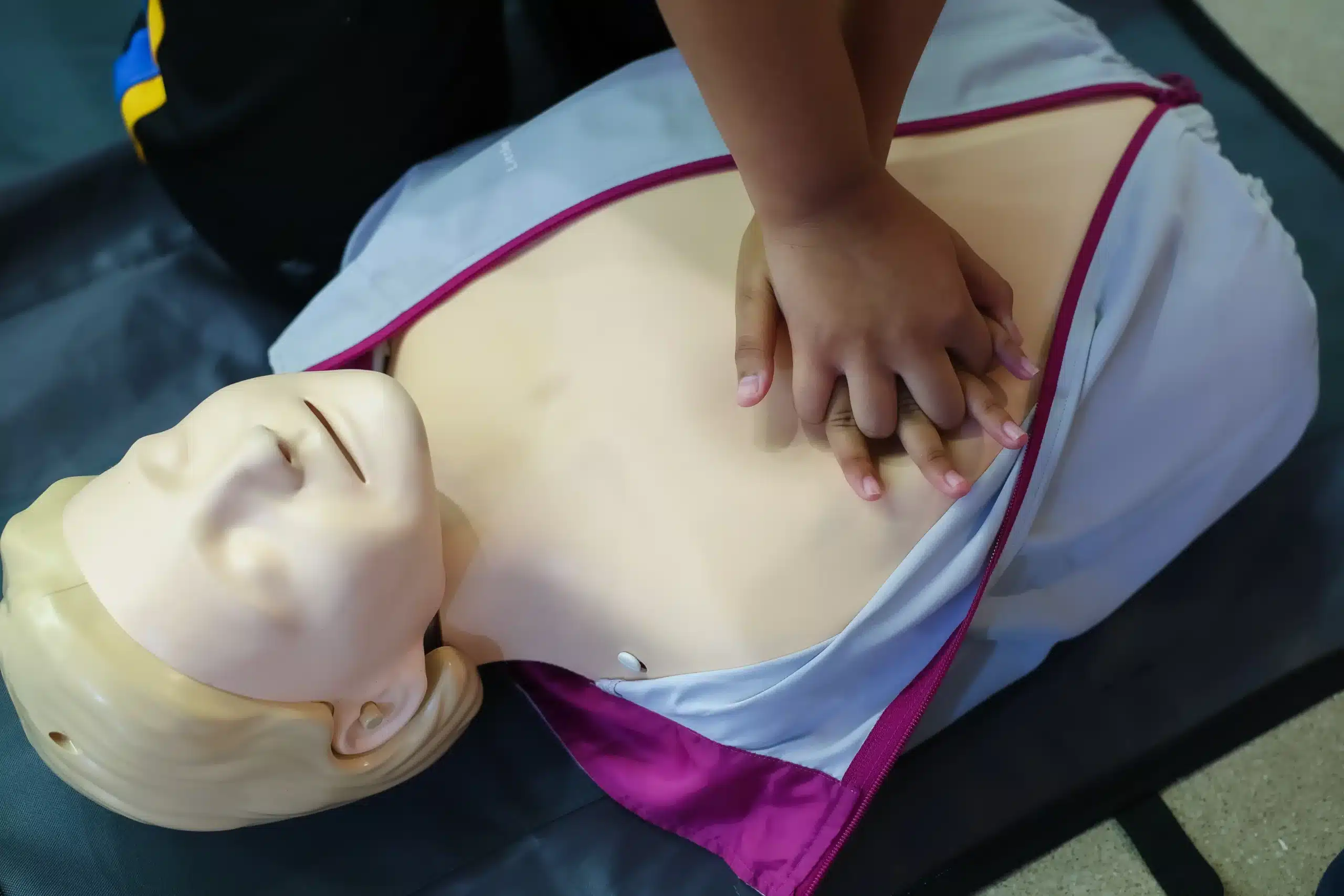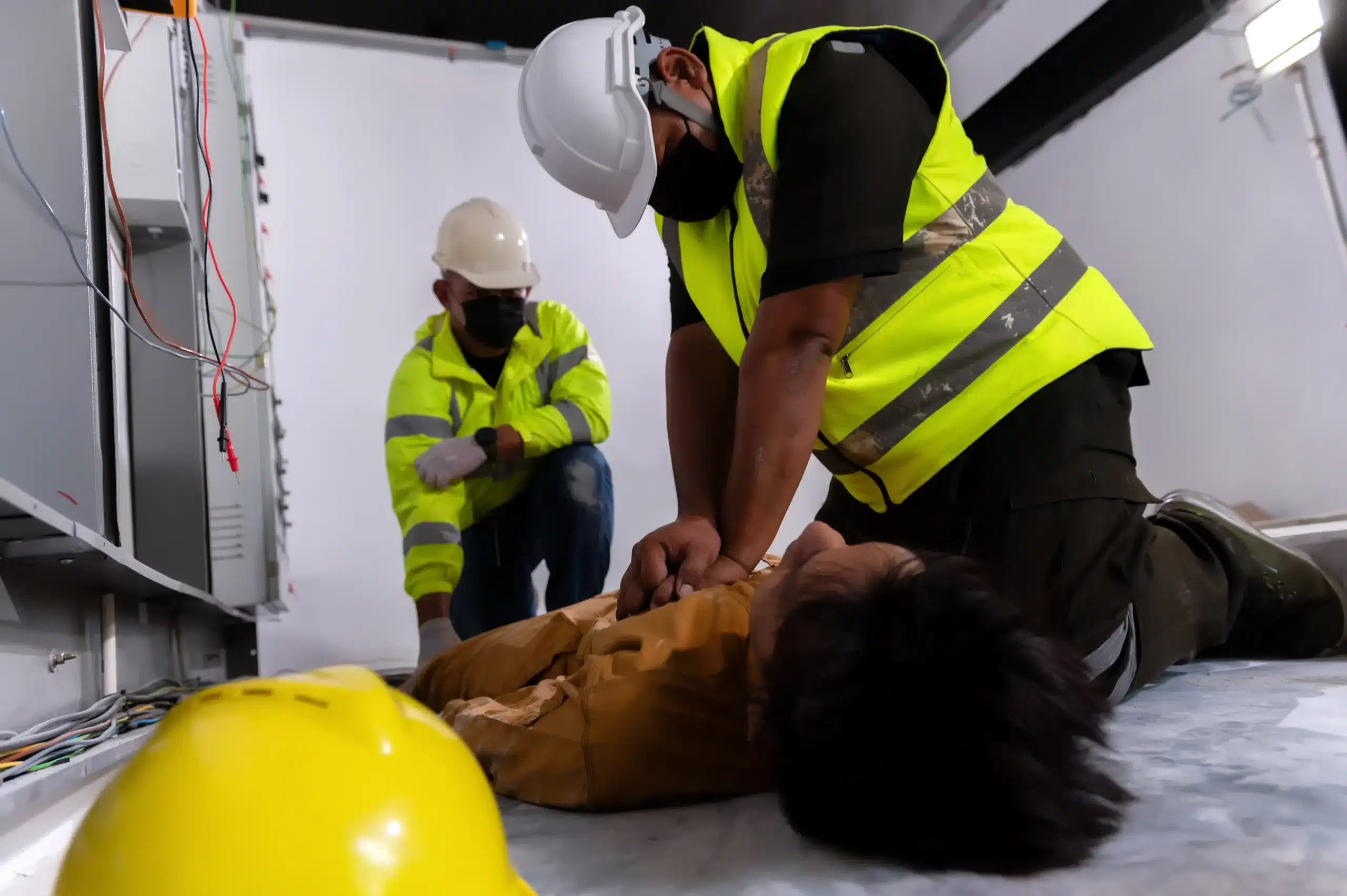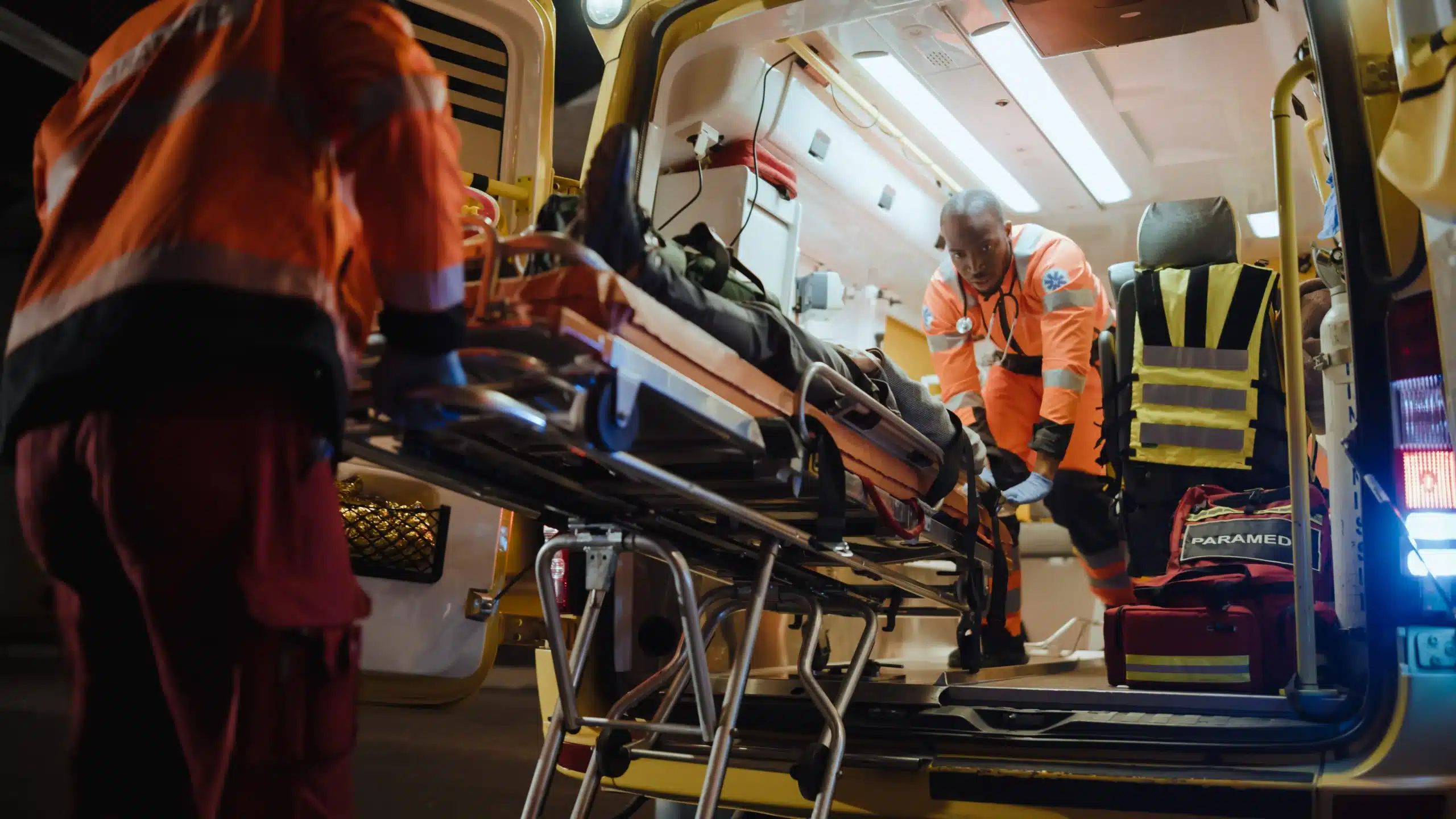Empowering yourself with life-saving skills is one of the most valuable things you can do. CPR classes in Walnut Creek provide the knowledge and hands-on training needed to respond effectively during medical emergencies. This comprehensive guide explores the different types of CPR classes available in Walnut Creek, discusses certification options, and helps you find the perfect course to meet your individual needs. Whether you’re a healthcare professional, a student, or simply a concerned citizen, this guide will help you navigate the world of CPR training in Walnut Creek.
Key Takeaways
- CPR skills are essential for everyone: Learning CPR equips you to respond effectively during emergencies, significantly increasing the chances of survival for someone experiencing cardiac arrest.
- Choose the right CPR class for your needs: Whether you’re a healthcare professional, a concerned parent, or simply want to be prepared, various CPR and first aid courses cater to different skill levels and goals.
- CPR training provides lasting benefits: Beyond the practical skills, CPR certification builds confidence, fosters a sense of community responsibility, and can even enhance your career prospects.
What is CPR and Why is it Important?
CPR stands for cardiopulmonary resuscitation. It’s a life-saving technique used when someone’s breathing or heartbeat has stopped, often due to a heart attack, near drowning, or other medical emergency. CPR combines chest compressions and rescue breaths to circulate oxygenated blood to the brain and other vital organs until professional medical help arrives. Learning CPR empowers you to make a real difference in such critical situations, dramatically increasing the chances of survival for someone experiencing cardiac arrest.
Common CPR Misconceptions
Several myths surround CPR and can prevent people from taking action. One common misconception is that CPR alone can restart a stopped heart. While CPR helps maintain blood flow, it’s often the defibrillation from an AED (automated external defibrillator) that restores a normal heart rhythm. Another myth is that CPR always breaks ribs. While rib fractures can sometimes occur during CPR, they are less common than you might think, and the risk of inaction is far greater. It’s also a misconception that only medical professionals need CPR training. Anyone can learn and benefit from these skills. For accurate information about CPR and to dispel any lingering doubts, explore our RQI classes.
How CPR Skills Apply to Real Life
CPR skills are invaluable in real-life emergencies. Imagine a family member collapsing at home or a coworker experiencing a sudden cardiac event at work. Knowing CPR allows you to respond immediately, providing crucial support until paramedics arrive. These skills can also be essential for those working in healthcare, education, or childcare. BLS courses in Visalia equip you with the knowledge and confidence to handle such situations effectively. CPR training empowers you to be a first responder in your community, potentially saving lives. If you’re in the Visalia area and want to learn more, check out our CPR classes.
CPR Classes in Walnut Creek: What are Your Options?
Finding the right CPR class can feel overwhelming, but understanding the different types available simplifies the decision. Walnut Creek offers various courses designed to meet different needs, from basic life support for everyday people to advanced training for healthcare providers. Let’s explore the most common options:
BLS Courses
BLS (Basic Life Support) certification courses are the foundation of CPR training. These classes cover essential life-saving skills like high-quality CPR for adults, children, and infants, AED use, and choking relief. BLS certification is a smart move for anyone, whether you’re a concerned citizen, teacher, or fitness professional. A BLS course typically takes between four and six hours. You can find more information on BLS CPR classes in Walnut Creek.
ACLS Training
ACLS (Advanced Cardiovascular Life Support) training goes beyond basic CPR. These courses are designed for healthcare professionals, like doctors, nurses, and paramedics, who manage cardiac arrest and other cardiovascular emergencies. ACLS certification delves into advanced airway management, pharmacology, and team dynamics during resuscitation. It builds upon the skills learned in BLS, providing a more comprehensive approach to patient care. Explore CPR training in Walnut Creek for more information on ACLS and other advanced courses.
PALS Classes
PALS (Pediatric Advanced Life Support) courses focus on the specific needs of infants and children facing medical emergencies. These classes equip healthcare providers with the skills to assess and treat critically ill young patients. PALS training emphasizes effective communication and teamwork in pediatric care settings. Like ACLS, PALS certification builds upon the foundation of BLS. Learn more about PALS courses in Walnut Creek.
First Aid & CPR Combo Courses
Combining First Aid and CPR training provides a well-rounded approach to emergency preparedness. These combo courses teach you how to respond to various medical situations, from cuts and burns to heart attacks and strokes. Learning both CPR and first aid empowers you to handle emergencies confidently. Consider First Aid and CPR classes in Walnut Creek for comprehensive training.
What Happens in a Walnut Creek CPR Class?
So, you’ve decided to take a CPR class in Walnut Creek—great choice! Knowing what to expect can help you feel prepared and confident. Here’s a glimpse into a typical Walnut Creek CPR class:
Course Structure and Duration
CPR classes in Walnut Creek generally follow American Heart Association (AHA) guidelines, ensuring a consistent and high-quality learning experience. Most BLS CPR classes run between four and six hours, covering essential life-saving techniques. The course combines lectures, demonstrations, and hands-on practice to keep you engaged and learning effectively. You’ll learn adult, child, and infant CPR, how to use an AED (automated external defibrillator), and how to respond to a choking emergency. Some courses also incorporate first-aid training for a more well-rounded skillset.
Hands-on Practice
Hands-on practice is a crucial part of your CPR class. Instructors use training equipment, like mannequins and AED trainers, to create realistic scenarios. This practical experience helps you develop muscle memory and the confidence to perform CPR and use an AED effectively. You’ll practice chest compressions, rescue breaths, and proper AED placement in a supportive environment. This type of training allows for collaborative learning and feedback from instructors.
Assessments: Written and Practical
To earn your CPR certification, you’ll demonstrate your skills and knowledge through written and practical assessments. The written exam covers key concepts and procedures taught throughout the course. The practical exam involves performing CPR and using an AED on a mannequin, showing you can apply what you’ve learned. Instructors provide plenty of practice and guidance to help you prepare for these assessments. Various training options cater to different skill levels, so everyone has the opportunity to succeed.
Who Teaches CPR in Walnut Creek? What are Their Qualifications?
Knowing who teaches your CPR class and their qualifications is essential for a valuable learning experience. You want to feel confident that your instructor has the right credentials and experience to equip you with these life-saving skills.
Instructor Certification Requirements
In Walnut Creek, CPR instructors are typically certified by nationally recognized organizations like the American Heart Association (AHA). This certification ensures instructors have completed a rigorous training program covering the latest CPR guidelines and techniques. These programs often include modules on adult, child, and infant CPR, as well as how to use an automated external defibrillator (AED). Certification also emphasizes effective teaching methodologies, ensuring instructors can clearly communicate these crucial skills to their students. Look for classes taught by AHA-certified instructors to ensure you receive high-quality training.
Expertise of Emergency Service Professionals
Many CPR instructors in Walnut Creek bring real-world experience to the classroom. It’s common to find instructors who are also firefighters, EMTs, or paramedics. This firsthand experience in emergency situations allows them to provide practical insights and answer your questions based on their own experiences. Learning from professionals actively involved in emergency services adds a layer of depth and realism to your training. They can offer perspectives beyond the textbook, sharing valuable anecdotes and best practices from the field. This focus on real-world application can significantly enhance your learning and build your confidence in responding to emergencies.
When and Where are CPR Classes in Walnut Creek?
Finding the right CPR class often comes down to logistics. Luckily, Walnut Creek offers a variety of schedules, locations, and learning formats to fit your needs.
Flexible Schedules
Juggling work, family, and other commitments can make it tough to find time for extra training. CPR classes in Walnut Creek understand this and offer flexible scheduling options. You can find classes running daily, from early morning to evening, seven days a week. This availability makes it easier to fit these life-saving skills into even the busiest schedules. For the most up-to-date schedules, visit providers like Walnut Creek CPR Classes.
Convenient Locations
Accessibility is key when choosing a CPR class. Walnut Creek offers classes in convenient locations throughout the city. Whether you’re near Treat Boulevard, the Contra Costa Centre, downtown near the Lesher Center for the Arts, or Creekside Drive near Kaiser, you’ll find a class nearby. Many providers, such as CPR Education, detail their locations on their websites.
Online & Hybrid Learning
If a traditional classroom setting isn’t feasible, explore online and hybrid learning options. Some providers offer online coursework combined with in-person skill checks and renewals. This blended approach allows you to learn the material at your own pace and then demonstrate your skills practically. CPR Training Center is one such provider. This format can be a great option for those with unpredictable schedules or who prefer a more self-directed learning experience.
How Much Do CPR Classes Cost? What Value Do They Offer?
Knowing the cost of CPR classes is a practical first step. But equally important is understanding the value you receive in return. Let’s explore both.
Course Costs
CPR class prices vary based on several factors, including the type of course, the location, and the training provider. Basic Life Support (BLS) classes, for example, typically run between four and six hours. This time investment equips you with the skills and knowledge to respond effectively in a cardiac emergency. More advanced courses, like Advanced Cardiovascular Life Support (ACLS) or Pediatric Advanced Life Support (PALS), involve more comprehensive training and may have a higher price tag. Check with various providers, including Safety Training Seminars, for specific pricing. Their Low Price Guarantee ensures you get the best value.
Discounts and Offers
Many training centers offer discounts, especially for group bookings or returning students. If you’re taking a CPR class with friends, family, or coworkers, ask about group discounts. Some providers also offer discounts for registering early or bundling courses, such as combining CPR and First Aid training. Look for these opportunities to save. Also, check if the training center offers discounts on supplies. You might find deals on CPR pocket masks or training manuals when purchased with your class. Contacting providers directly is the best way to learn about current promotions. You can find BLS courses in Visalia offered by Safety Training Seminars on their website. They also offer RQI classes.
How Do You Get Certified? How Long Does it Last?
AHA Certification
Getting certified in CPR typically involves enrolling in a course that adheres to the American Heart Association (AHA) guidelines. These courses give you the knowledge and skills to respond effectively during cardiac emergencies. Our Visalia courses meet these guidelines, ensuring you receive high-quality training and the confidence to act in critical situations. We offer a variety of AHA-compliant courses, from basic CPR training to more advanced certifications.
Renewal Requirements
After completing your CPR course, you’ll receive an official AHA certification card, valid for two years. To maintain your certification and stay current with the latest CPR techniques, complete a renewal course before your certification expires. We offer regular renewal courses in Visalia, making it easy to keep your skills sharp. Contact us to learn more about our renewal options and scheduling. We’re here to help you maintain your life-saving skills.
Which CPR Class is Right for You?
Choosing the right CPR class depends on your individual needs and goals. Whether you’re a healthcare provider or want to be prepared for everyday emergencies, understanding the different CPR certifications available will help you make an informed decision.
Healthcare Professional Needs
For healthcare professionals, including doctors, nurses, paramedics, and medical students, a Basic Life Support (BLS) certification is often required. BLS training provides the skills to respond to life-threatening emergencies, covering CPR, AED use, and relieving choking. This comprehensive training ensures healthcare providers can deliver high-quality care in critical situations. Some healthcare providers might also need Advanced Cardiovascular Life Support (ACLS) or Pediatric Advanced Life Support (PALS) certification, depending on their specific roles. These advanced certifications build upon the foundation of BLS and delve into more specialized techniques.
Public & Workplace Safety
CPR and first aid training are invaluable for anyone who wants to learn life-saving skills. These skills empower you to respond effectively during emergencies at home, in public, or at work. While not always mandatory outside of the healthcare field, CPR and first aid certification shows you’re prepared for emergencies. Group CPR training is an excellent option for workplaces, fostering teamwork and building confidence in handling emergencies together. Knowing CPR and first aid can make a real difference, whether assisting a family member, coworker, or even a stranger.
Top CPR Training Providers in Walnut Creek
Finding the right CPR class can feel overwhelming, but several reputable providers in Walnut Creek offer various courses to fit your needs. Here’s a closer look at some of your options:
Safety Training Seminars
Safety Training Seminars offers a range of American Heart Association (AHA) courses, including BLS, ACLS, and PALS. They focus on providing comprehensive training for healthcare providers and anyone seeking certification. For those looking for standard CPR and first aid training, it’s worth checking if they offer a combined course. Learn more about their BLS training.
CPR Education
CPR Education provides CPR, AED, and first aid training in Walnut Creek and surrounding areas. They offer initial certification and renewal courses, a convenient option for those needing either. Their focus on serving Walnut Creek and nearby locations makes them accessible to the local community.
CPR Training Center
With almost 30 years of experience, the CPR Training Center in Walnut Creek is an AHA-certified training center. They offer various CPR and advanced life support courses, including ACLS, BLS, and PALS. Their established presence in the community speaks to their history of providing reliable CPR training.
Walnut Creek CPR Classes
Walnut Creek CPR Classes offers a variety of AHA-certified courses, including CPR, BLS, ACLS, PALS, and first aid. Their daily classes are a great option for those with busy schedules. This provider is worth considering if you need a class quickly.
Why Take a CPR Class in Walnut Creek?
Learning CPR can feel empowering. It equips you with the skills to make a real difference in a critical situation. But the benefits extend beyond the practical application of chest compressions and rescue breaths. Taking a CPR class in Walnut Creek offers personal, community, and professional advantages that can enrich your life in unexpected ways.
Build Confidence in Emergencies
Emergencies are, by nature, stressful. Knowing how to react quickly and effectively can make all the difference. A CPR class doesn’t just teach you the mechanics of life-saving techniques; it builds your confidence to handle these high-pressure situations. This newfound confidence can extend beyond medical emergencies, helping you feel more capable in various challenging situations. CPR and first-aid certification instills a sense of preparedness, allowing you to react calmly and decisively when every second counts.
Community Impact and Networking
Learning CPR isn’t just about individual preparedness; it’s about strengthening your community. When you take a CPR class in Walnut Creek, you become part of a network of people equipped to respond to emergencies. This creates a safer environment for everyone—from your family and friends to your neighbors and colleagues. Plus, group classes offer a chance to connect with like-minded individuals, building relationships while learning valuable skills.
Career Advancement
For those in, or aspiring to be in, the healthcare field, CPR certification is often a necessity. BLS certification is a fundamental requirement for many healthcare roles and demonstrates a commitment to patient safety. It can open doors to new opportunities and enhance your professional credibility. Even outside of healthcare, having CPR certification on your resume can make you a more desirable candidate, showcasing your willingness to take initiative and learn valuable skills. Healthcare providers rely on these skills to respond to life-threatening emergencies effectively.
Related Articles
- Debunking Common CPR Myths
- The Science Behind Effective CPR – Visalia CPR Classes
- Why CPR is Important in Healthcare – Visalia CPR Classes
- Prepare for Your CPR Class in Visalia, CA – Key Course Info
- American Heart Association Group CPR Discount Classes in Visalia
Frequently Asked Questions
What’s the difference between BLS, ACLS, and PALS?
BLS (Basic Life Support) teaches essential CPR and AED skills for anyone, while ACLS (Advanced Cardiovascular Life Support) and PALS (Pediatric Advanced Life Support) are more advanced courses for healthcare professionals. ACLS focuses on managing adult cardiac arrests, and PALS focuses on the specific needs of infants and children in emergencies. Think of BLS as the foundation, with ACLS and PALS building upon those core skills for specialized medical situations.
I’m not a medical professional. Is CPR training still relevant for me?
Absolutely! Knowing CPR can be life-saving in various situations, whether at home, work, or out in your community. You never know when you might need to help a family member, friend, or even a stranger. CPR skills empower you to respond confidently during emergencies, providing crucial support until professional help arrives.
How often do I need to renew my CPR certification?
CPR certifications are typically valid for two years. Renewal courses ensure your skills stay sharp and aligned with the latest guidelines. Check with your certifying organization or training provider for specific renewal requirements and available courses.
What can I expect during a CPR class?
CPR classes combine instruction, demonstrations, and hands-on practice. You’ll learn the proper techniques for chest compressions, rescue breaths, and using an AED. Expect a mix of learning and active participation, with opportunities to ask questions and practice your skills in a supportive environment.
How can I find a CPR class near me?
Several organizations and training centers offer CPR classes. Searching online for “CPR classes near me” is a great starting point. You can also check with local hospitals, community centers, or the American Heart Association for training resources in your area. Look for classes that fit your schedule and offer the type of certification you need.
